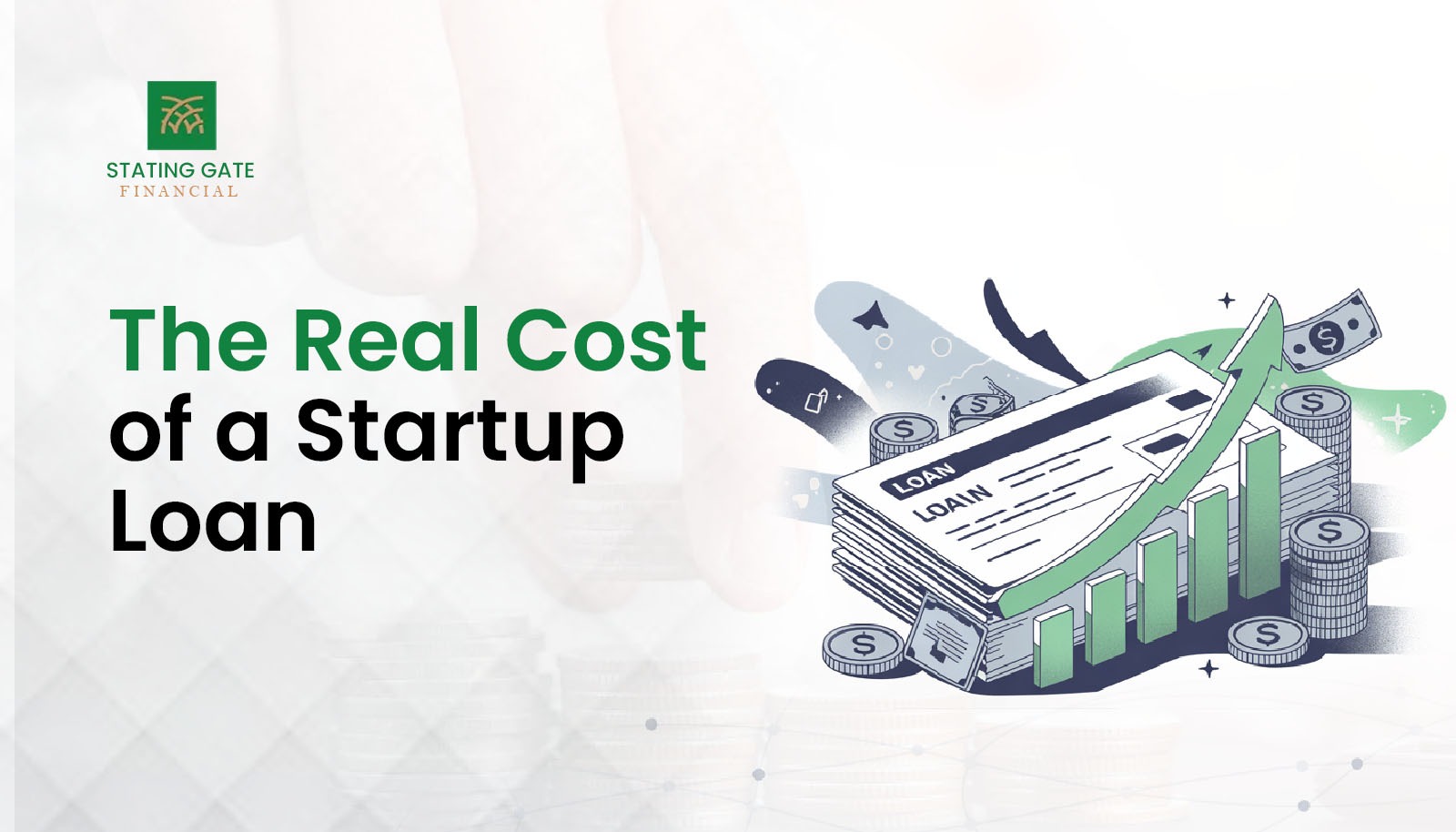Discover the true cost of startup loans, interest, fees, risks, and smarter financing options. Learn how to fund your business wisely with Starting Gate Financial.
Launching a new business is exciting — but securing funding can be one of the hardest hurdles. Many entrepreneurs turn to startup loans as a quick way to access capital. While loans can provide the financial boost you need, the real cost often goes beyond just the advertised interest rate.
In this guide, we’ll break down the hidden costs, risks, and smarter financing options so you can make an informed decision.
Why Entrepreneurs Choose Startup Loans
A startup loan gives you immediate access to working capital for essentials like:
- Leasing office or retail space
- Purchasing equipment or technology
- Marketing and advertising campaigns
- Hiring staff
Unlike equity financing, a loan allows you to keep full ownership of your business, but that freedom comes at a financial cost.
The Real Cost Behind the Loan Agreement
When banks or lenders advertise a “low interest rate,” it’s important to look at the total cost of borrowing. The true cost of a startup loan includes:
- Interest Rates – Depending on credit score and risk profile, startup loan rates can range anywhere from 6% to 30%.
- Origination Fees – Many lenders charge 1–5% upfront just for processing the loan.
- Prepayment Penalties – Some contracts penalize you if you try to pay off your loan early.
- Collateral Requirements – If your loan requires assets as collateral, losing those in default could mean losing business-critical property.
- Insurance & Legal Fees – Some lenders require business insurance or legal documentation that adds to the cost.
Common Risks of Startup Loans
Even if you can manage the monthly payments, loans carry long-term risks:
- Cash Flow Strain – Loan repayments may limit your ability to reinvest profits.
- Personal Liability – Some lenders require a personal guarantee, which means your credit and personal assets are at stake.
- Over-leveraging – Too much debt early on can prevent you from securing future financing.
Smarter Alternatives to Startup Loans
Startup loans aren’t the only way to fund your dream. Consider these alternatives:
- SBA Microloans – Lower interest rates and more favorable terms.
- Equipment Financing – Instead of a general loan, finance specific assets.
- Business Credit Lines – Flexible access to cash when you need it.
- Investor Funding – Trade equity for capital without repayment stress.
- Grants – Free funding opportunities (though competitive).
How to Calculate the True Cost
Before signing any loan, calculate:
- Monthly Repayment (Principal + Interest + Fees)
- Total Repayment Over Loan Term
- Opportunity Cost – What else could you invest in with that money?
Use our free Loan Calculator to estimate payments and ROI.
Final Thoughts: Should You Take a Startup Loan?
The real cost of a startup loan isn’t just the number in your repayment plan — it’s the impact it has on your business’s cash flow, risk tolerance, and growth potential.
At Starting Gate Financial, we help entrepreneurs like you navigate financing with clarity. Whether you’re considering a traditional loan, equipment financing, or alternative funding solutions, our experts will guide you to the smartest option.

